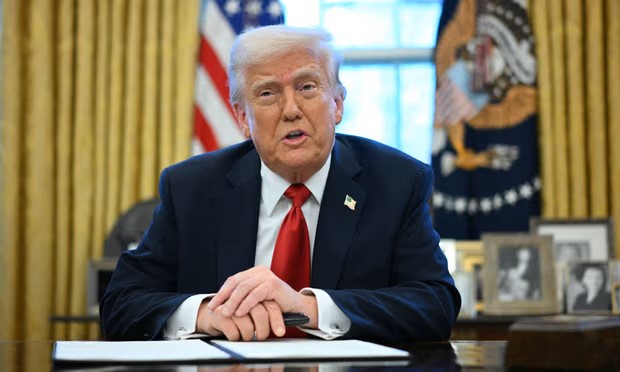The Trump administration’s threat to bar Harvard University from enrolling international students unless it submits to external political oversight marks a significant escalation in the ongoing tension between the White House and academic institutions. This move, stemming from President Trump’s displeasure with Harvard’s refusal to comply with his demands regarding admissions, hiring practices, and perceived political bias, raises serious concerns about academic freedom and institutional autonomy. The Department of Homeland Security’s statement linked the university’s ability to enroll international students to its compliance with unspecified reporting requirements, effectively holding the institution’s diverse student body hostage to political pressures. This action represents a departure from established norms of university governance and raises questions about the extent to which the executive branch can exert influence over educational institutions.
The potential repercussions of this action are far-reaching. Harvard University, a globally renowned institution with a long history of academic excellence, attracts a significant number of international students who contribute to the intellectual vibrancy and diversity of the campus community. Barring these students would not only deprive them of educational opportunities but also diminish the richness of the learning environment for all students. Furthermore, this move could set a dangerous precedent for other universities, potentially chilling academic freedom and discouraging open inquiry. The threat of losing international students, a crucial source of revenue and intellectual capital for many institutions, could pressure universities to conform to political demands, potentially compromising their commitment to unbiased research and teaching.
The administration’s focus on “reporting requirements” raises questions about the specific information being sought and the justification for such oversight. Without clarity on these requirements, it is difficult to assess the legitimacy of the government’s demands and the potential impact on Harvard’s operations. The vague nature of the threat also creates uncertainty for the university and its students, hindering their ability to plan for the future. The implication that Harvard is not currently in compliance with its reporting obligations, without specifying which obligations are in question, further fuels concerns about the transparency and fairness of this action. This lack of transparency raises the specter of politically motivated investigations and potential interference in academic affairs.
This confrontation highlights the broader tension between the Trump administration and academic institutions, particularly those perceived as holding liberal or progressive viewpoints. The administration’s rhetoric often portrays universities as bastions of political correctness and elitism, contributing to a climate of distrust and hostility towards higher education. This latest move against Harvard can be seen as part of a larger pattern of attempts to exert political control over academic institutions, potentially undermining their independence and ability to fulfill their mission of advancing knowledge and fostering critical thinking. The politicization of higher education poses a significant threat to the integrity of the academic enterprise and the free exchange of ideas.
The implications of this action extend beyond Harvard and the United States. International students play a vital role in global academic exchange, contributing to research, innovation, and cross-cultural understanding. The Trump administration’s threat to restrict their access to American universities sends a negative message to the international community, potentially discouraging talented students from pursuing their education in the United States. This could have long-term consequences for American competitiveness and its standing as a global leader in higher education. Furthermore, this action could embolden authoritarian regimes around the world to exert greater control over their own academic institutions, further eroding academic freedom globally.
The standoff between the Trump administration and Harvard University represents a critical juncture in the ongoing debate over the role of government in higher education. The administration’s attempt to leverage international student enrollment to exert political pressure raises serious concerns about academic freedom, institutional autonomy, and the future of American higher education. The outcome of this confrontation will have significant implications not only for Harvard but also for the broader academic community and the relationship between government and universities. The defense of academic freedom requires vigilance and a commitment to upholding the principles of open inquiry and independent thought, ensuring that universities can continue to serve as vital centers of learning and discovery.














